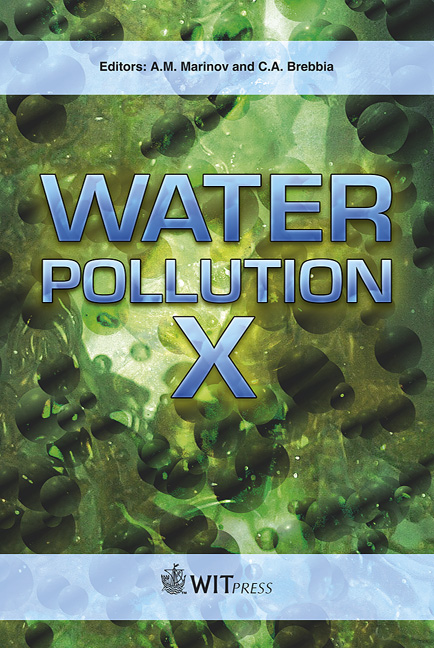Hydrochemical Evaluation Of Different Spring Waters For Bottling
Price
Free (open access)
Transaction
Volume
135
Pages
11
Page Range
15 - 25
Published
2010
Size
1,155 kb
Paper DOI
10.2495/WP100021
Copyright
WIT Press
Author(s)
D. M. Bonotto, B. W. Tessari, L. Arthus, M. Santilli & L. Caprioglio
Abstract
This investigation was carried out within the Paraná sedimentary basin in São Paulo and Mato Grosso do Sul States, Brazil, and involved the sampling of different spring water samples with the purpose of evaluating their quality for bottling. Several methods were utilized for acquiring the hydrochemical data, such as methyl orange end-point titration, potentiometry, ion selective electrodes, spectrophotometry, atomic absorption spectrophotometry and inductively coupled plasma spectrometry. The results obtained for the analyzed samples were compared with the guideline values established by the São Paulo State and Brazilian Health Ministry legislations for defining the potable water standards. The Brazilian Code for Mineral Waters that was established by Register 7841 published on 8 August 1945 was also taken into account for verifying if the spring waters are mineralized. The hydrochemical data allowed the identification of anthropogenic and geogenic inputs of some constituents in most of the samples, which affected the water quality and did not allow them to be utilized for commercial purposes (bottling). The waters of these springs can only become appropriate for human consumption after previous chemical treatment. Keywords: drinking water quality, spring waters, hydrochemistry, mineral waters, bottling, contamination. 1 Introduction In many countries, spring waters are extensively used for consumption purposes as an option to tap water, as many people believe they are healthy and/or can be
Keywords
drinking water quality, spring waters, hydrochemistry, mineral waters, bottling, contamination





